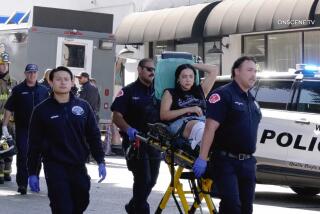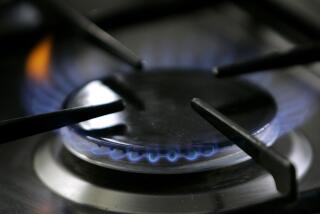Tips to Avoid Danger of Fires During Grilling Season
As people get ready to fire up their grills this summer, the U.S. Consumer Product Safety Commission urges caution.
Liquid petroleum (LP) gas or propane, used in gas grills, is highly flammable. Each year about 30 people are injured as a result of gas-grill fires and explosions. Many of them occur when consumers first use a grill that has been left idle for a long time or just after refilling and reattaching the grill’s gas container.
To reduce the risk, grill users should routinely:
* Check the tubes that lead into the burner for blockage from insects, spiders or food grease. Use a pipe cleaner or wire to clear blockage and push it through to the main part of the burner.
* Check grill hoses for cracking, brittleness, holes and leaks. Make sure there are no sharp bends in the hose or tubing.
* Move gas hoses as far away as possible from hot surfaces and dripping, hot grease. If you can’t move the hoses, install a heat shield to protect them.
* Replace scratched or nicked connectors, which can leak gas.
* Check for gas leaks, following the manufacturer’s instructions, if you smell gas or when you reconnect the grill to the LP gas container. If you detect a leak, immediately turn off the gas and don’t attempt to light the grill until the leak is fixed.
* Keep lighted cigarettes, matches and open flames away from a leaking grill.
Here are other tips for safe grilling:
* Never use a grill indoors. Keep it at least 10 feet from your house or any other building.
* Do not use the grill in a garage, breezeway, carport or porch or beneath a surface that can catch fire.
* Do not attempt to repair the tank valve or the appliance yourself. See an LP gas dealer or a qualified appliance repair person.
* Always follow the printed instructions that came with the grill.
* Consumers should use caution when storing LP gas containers. Keep them upright. Never store a spare gas container under or near the grill or indoors. Never store or use flammable liquids, like gasoline, near the grill.
* To avoid accidents while transporting LP gas containers, keep them in a secure, upright position. Never keep a filled container in a hot car or car trunk. Heat may cause the tank’s interior pressure to increase to the point that the relief valve might open and gas will escape.
* Consumers should use extreme caution and always follow manufacturer’s instructions when connecting or disconnecting LP gas containers.
* For more information, call the Consumer Product Safety Commission at (800) 638-2772. Consumers can also obtain information on the Web at https://www.cpsc.
gov or via Internet gopher services at cpsc.gov. Report product hazards to info@cpsc.gov.
More to Read
Inside the business of entertainment
The Wide Shot brings you news, analysis and insights on everything from streaming wars to production — and what it all means for the future.
You may occasionally receive promotional content from the Los Angeles Times.










